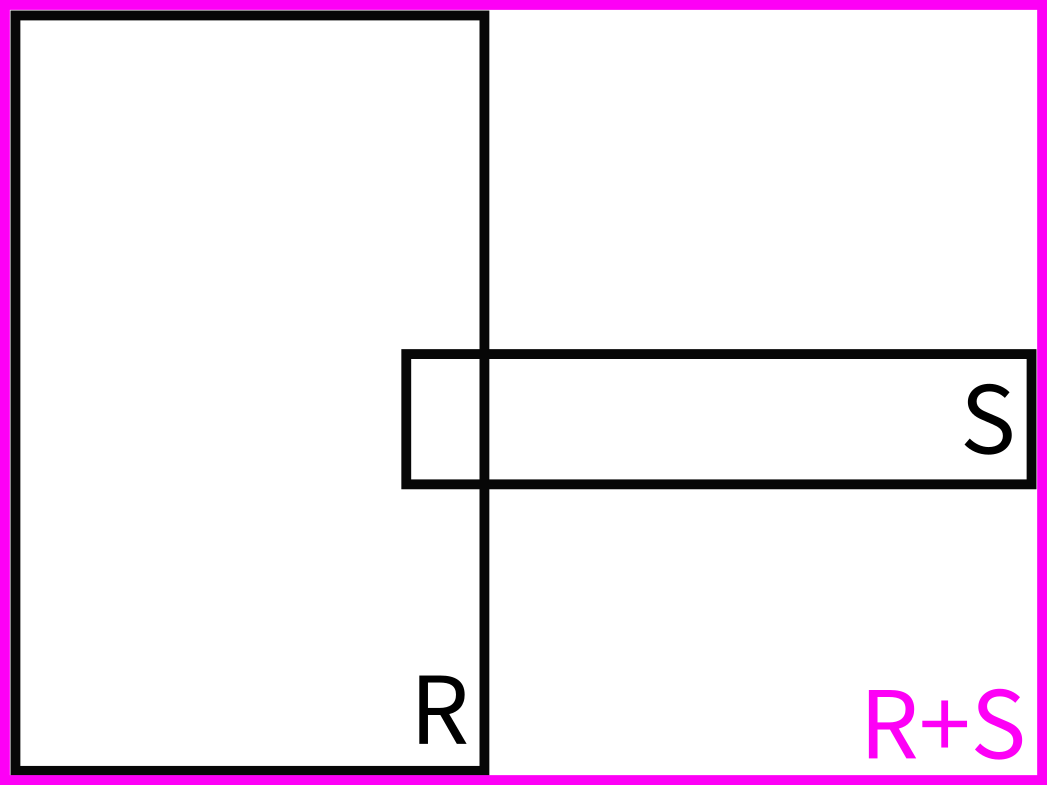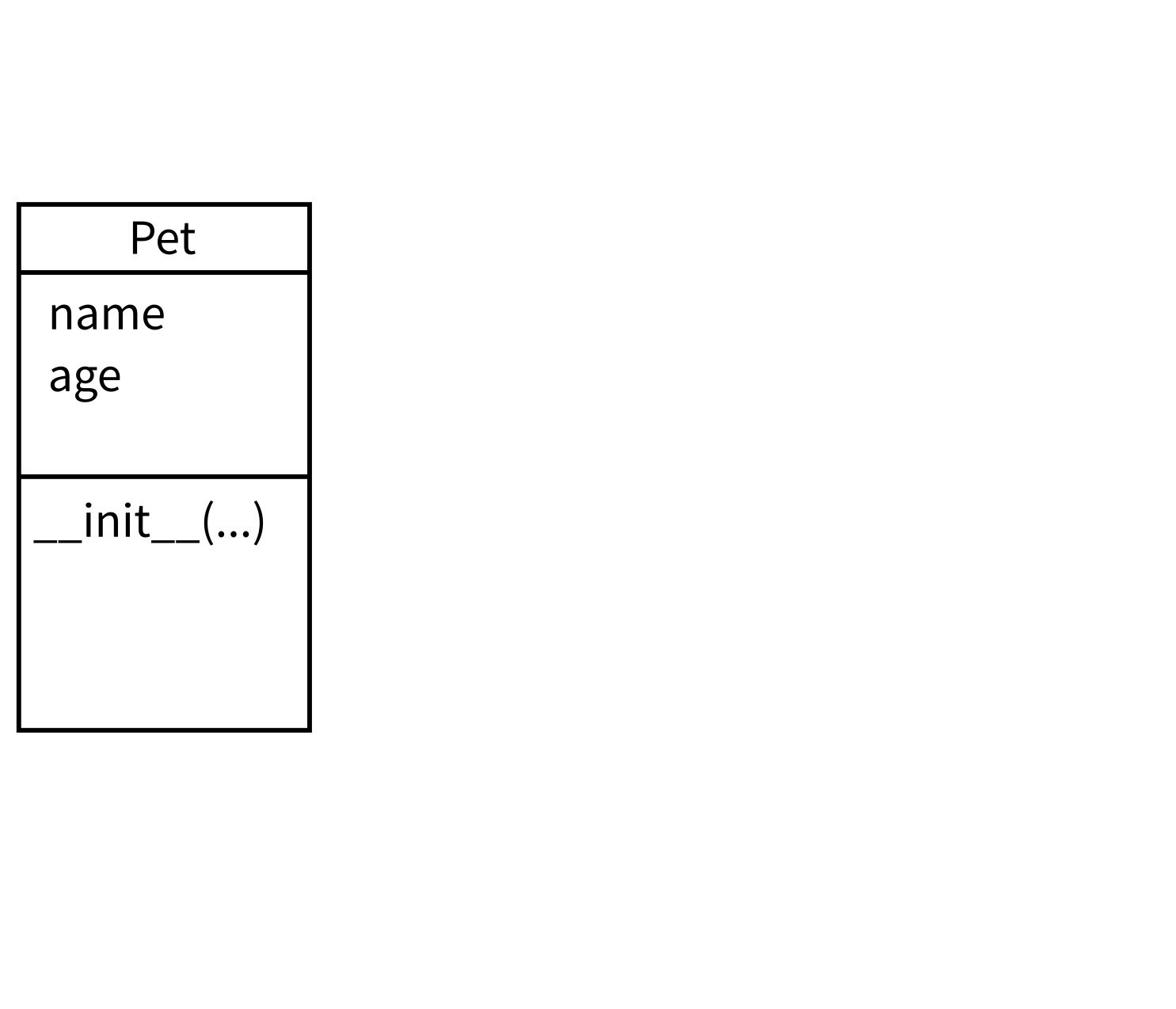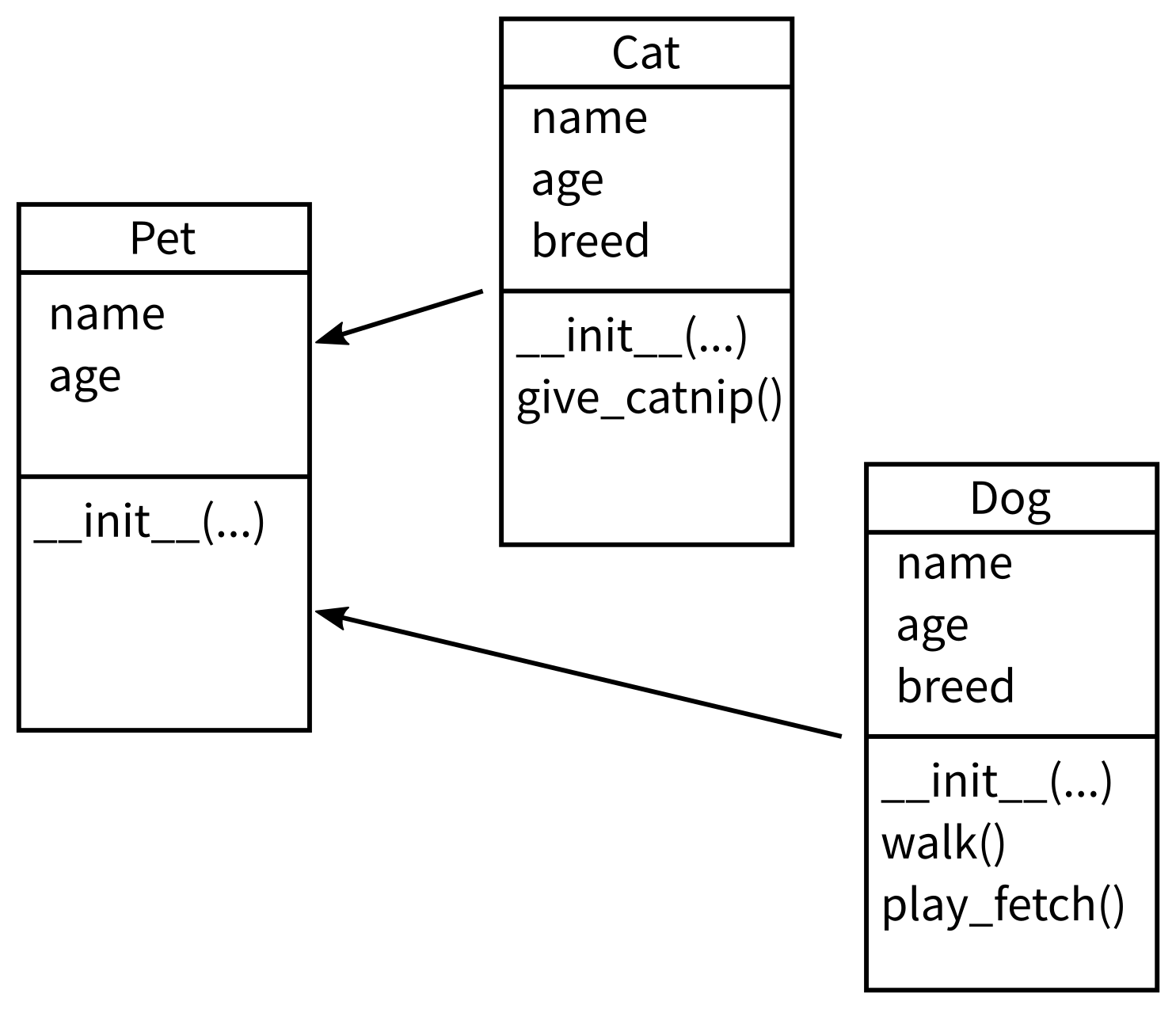Lecture 27
Object-oriented Programming 3
Inheritance
MCS 260 Fall 2021
Emily Dumas
Reminders
Goals
More overloading
Recall operator overloading means writing code to give built-in operators custom behavior when applied to your classes.
Last time: Custom equality test with __eq__.
Now: Custom addition with __add__.
How should we add two instances of Rectangle?
Idea: Define R+S to be the smallest rectangle that contains both R and S.

Inheritance
Complex programs may have many classes.
Often, some classes have a "is-a" relationship: One represents a more specific type of object than another.
e.g. Dresser is a FurnitureItem
More restrictive classes can have specialized functions (e.g. open_drawer(idx)) and attributes (e.g. ndrawers).
In OOP, is-a relationships are formalized through inheritance. The more specific class is a subclass of the more general one.
Subclasses inherit all methods and attributes from their superclass, but these can be changed or added to in the subclass definition.
Syntax: class Dresser(FurnitureItem):
Class hierarchy example

Class hierarchy example

In geom module?
Circle and Rectangle share a lot of behavior—should both be subclasses of another class?
This is worth considering, but we won't do it today.
What if we want to add a class Square? Since any square is a rectangle, we should make Square a subclass of Rectangle.
super()
In a method of a subclass, super() returns an modified view of the current object that behaves like an instance of the superclass.
e.g. In a Square object, super() returns a version of the same object that will act like a Rectangle.
super() is often used to call the superclass constructor.
__class__
Every object has an attribute __class__ that refers to its class.
In a method body, self.__class__.__name__ gives the name of the class as a string.
References
- In Downey:
- Chapter 17 discusses classes, objects, and methods
- Object-oriented programming is discussed in general terms in Section 6.5 of Brookshear & Brylow.
Revision history
- 2021-10-25 Initial publication